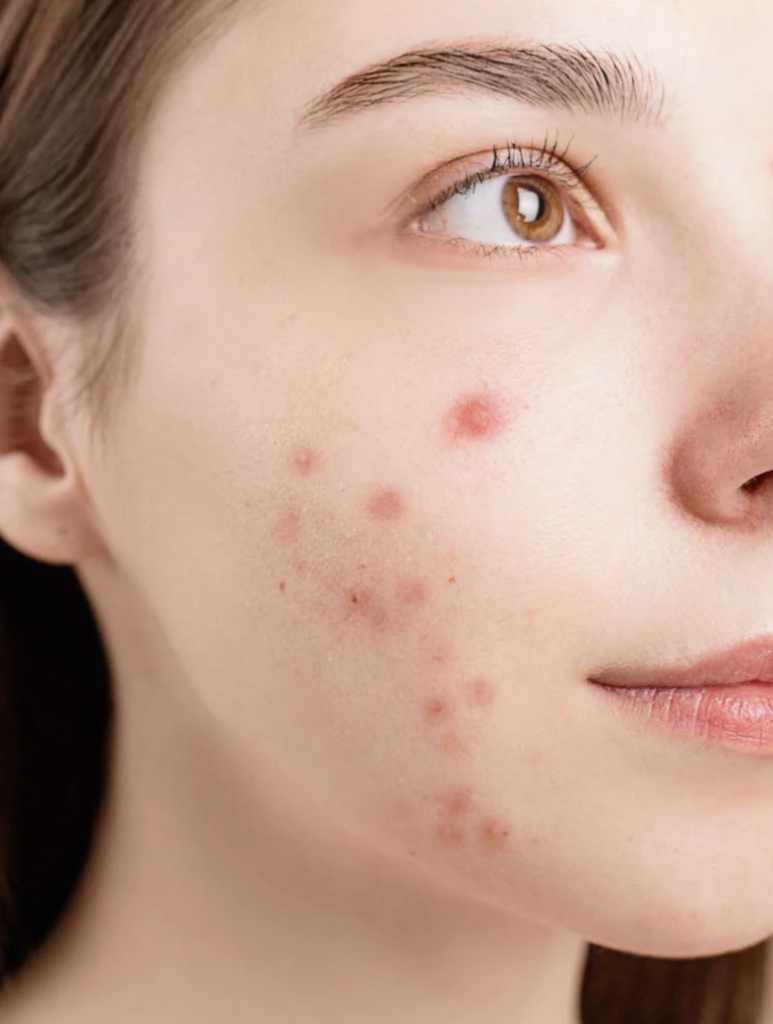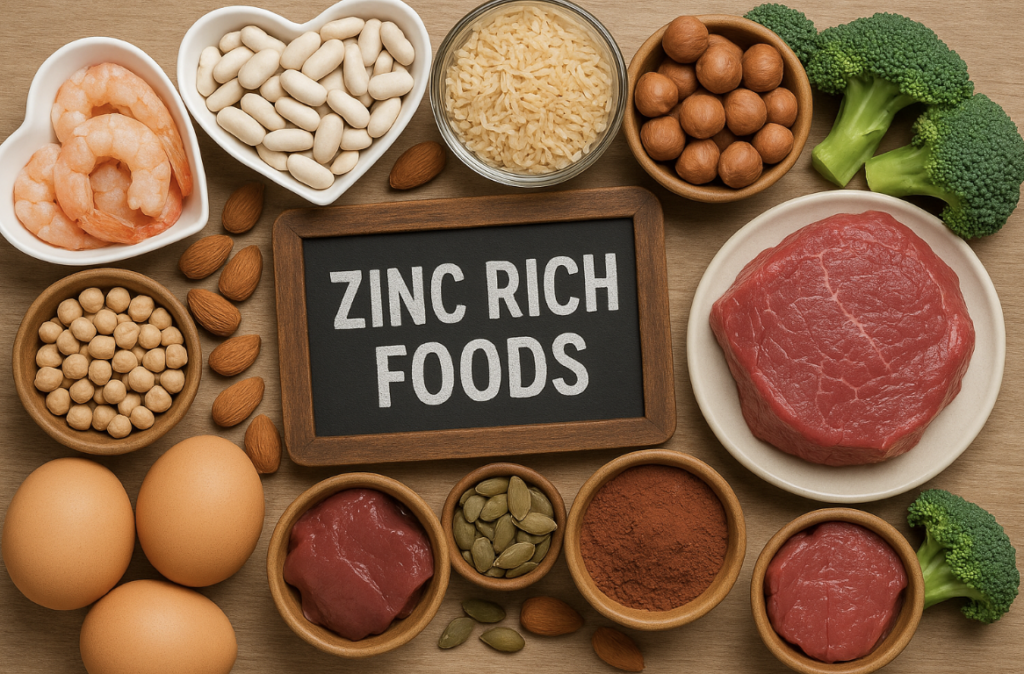Zinc is a powerful trace mineral crucial for immune defense, wound healing, hormone balance, and even cognitive function. While supplementation is sometimes needed, eating a variety of zinc-rich foods is the best way to maintain healthy levels. In this post, you’ll learn why zinc matters, signs of deficiency, and the best natural food sources to add to your diet.
What Does Zinc Do in the Body?
Zinc is a cofactor for over 300 enzymes and is involved in nearly every major biochemical reaction.
✔ Key Functions of Zinc:
- Supports immune function and infection resistance
- Aids in skin repair and wound healing
- Regulates hormones (including testosterone)
- Supports DNA synthesis and cell growth
- Boosts cognitive health and mood balance
💡 Did You Know? Zinc is essential for taste and smell—deficiency can dull these senses.
Top Health Benefits of Zinc

✔ 1. Strengthens the Immune System
Zinc helps create and activate immune cells, making you more resilient against infections.
✔ 2. Accelerates Wound Healing
Topical and dietary zinc can speed up recovery from cuts, burns, and ulcers.
✔ 3. Supports Skin Health
Zinc reduces inflammation and regulates oil glands, helping prevent acne and eczema.
✔ 4. Promotes Hormonal Balance
Adequate zinc levels are vital for reproductive health in both men and women.
✔ 5. Boosts Cognitive and Emotional Health
Zinc influences neurotransmitters that affect memory, learning, and mood regulation.
Signs of Zinc Deficiency

⚠️ Common Symptoms:
- Frequent infections or colds
- Slow wound healing
- Acne, rashes, or dry skin
- Loss of appetite or impaired taste and smell
- Hair loss or brittle nails
- Difficulty focusing or mood swings
💡 At-Risk Groups:
- Vegetarians and vegans (plant-based zinc is harder to absorb)
- People with digestive disorders (e.g., IBS, Crohn’s)
- Pregnant or breastfeeding women
- Individuals with chronic illnesses or diabetes
Top Food Sources of Zinc

🥩 Animal-Based:
- Oysters (highest natural source)
- Beef, pork, and lamb
- Chicken and turkey (especially dark meat)
- Crab and lobster
- Eggs and dairy products
🌿 Plant-Based:
- Pumpkin seeds, hemp seeds, and sesame seeds
- Chickpeas, lentils, and black beans
- Cashews, almonds, and peanuts
- Quinoa, oats, and whole wheat bread
💡 Tip: Soaking, sprouting, or fermenting plant foods can reduce phytates that inhibit zinc absorption.
Recommended Daily Intake (RDI)
- Adult men: 11 mg/day
- Adult women: 8 mg/day
- Pregnant women: 11–12 mg/day
- Breastfeeding women: 12 mg/day
Zinc Supplement Considerations
💊 Forms Available:
- Zinc gluconate, picolinate, citrate (easy on digestion)
- Zinc oxide (common but less bioavailable)
⚠️ Supplement Tips:
- Long-term high doses (>40 mg/day) can interfere with copper absorption and weaken immunity
- Balance zinc with copper supplementation if using high doses for extended periods
💡 Best Practice: Focus on food sources first; reserve supplements for diagnosed deficiency or therapeutic needs.
Pros and Cons of Zinc
✔ Pros:
- Essential for immunity, healing, and hormone balance
- Supports healthy skin and cognitive function
- Found easily in a wide variety of foods
⚠️ Cons:
- Plant-based zinc sources have lower bioavailability
- High-dose supplements can cause digestive upset and mineral imbalances
Zinc is a small but mighty mineral your body depends on for immune strength, skin clarity, hormonal balance, and mental sharpness. By eating a variety of zinc-rich foods—including oysters, beef, seeds, and legumes—you can maintain optimal zinc status naturally and support your body’s defenses from the inside out.
Read more on chromium for blood sugar and energy regulation
Learn more about zinc from the National Institutes of Health
